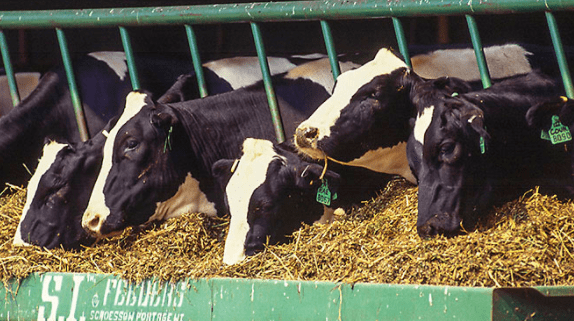The United States and Canada established a second dispute settlement panel on Canada’s dairy tariff-rate quota policies under the United States-Mexico-Canada Agreement (USMCA).
Canada allocates these quotas on a market share approach and imposes new conditions that effectively prohibit retailers, foodservice operators and other types of importers from using the tariff-rate quota allocations, according to USMCA.
Canada and the United States are each other’s largest trading partners, reflecting the physical proximity of the two countries and their close economic and financial relationship.
In 2021, trade with the United States accounted for 74.9% of the value of Canada’s merchandise exports and 62.2% of the value of Canada’s merchandise imports.
According to the U.S. Census Bureau, trade with Canada accounted for 17.5% of U.S. exports and 12.8% of its imports in 2021.
The share of U.S. imports from Canada has increased slightly year-to-date through September 2022, likely due to higher energy prices.
Dairy Tariff Quotas
In December 2021, a USMCA dispute settlement panel found Canada’s dairy tariff quota allocation measures to be inconsistent with Canada’s USMCA obligations.
In response to the panel’s adverse findings, Canada made changes to its tariff quota allocation measures, but these new policies remain inconsistent with Canada’s USMCA obligations, according to the U.S. government.
USMCA
At the regional level, the USMCA entered into force between Canada, the United States and Mexico on July 1, 2020.
The USMCA preserves the core trade benefits of the North American Free Trade Agreement (NAFTA), including existing tariff commitments, and incorporates new and updated provisions that seek to address 21st century trade issues.
The three parties continue to work together to ensure full implementation of commitments under the Agreement, especially through regular participation in the USMCA Free Trade Commission and related committees.
«Although the United States won an earlier USMCA dispute over Canada’s dairy tariff quota allocation policies, the Canadian government’s revised measures have not resolved the issue,» said Katherine Tai, head of USTR.

